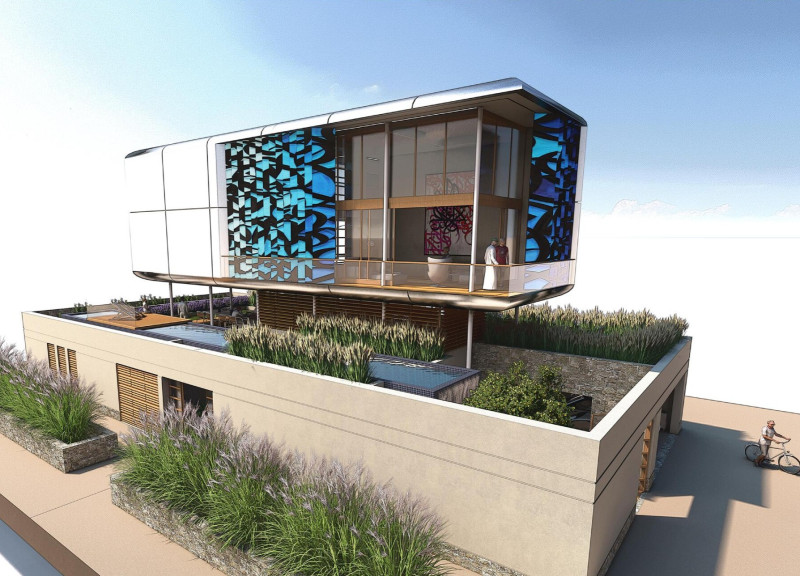5 key facts about this project
# Analytical Report: The "Happiness Machine" Architectural Design Project
## Overview
Located in Dubai, the "Happiness Machine" integrates traditional architectural elements with contemporary sustainable practices to create a living environment that promotes well-being and community engagement. This design reflects both the city's rapid modernization and its rich cultural heritage, drawing from historical precedents while addressing current and future needs for sustainable living.
## Conceptual Framework and Social Connectivity
The project embodies a design philosophy that honors traditional Arabic architecture while prioritizing sustainability and communal interaction. Key elements include the incorporation of courtyards and reception halls, which reflect historic cultural practices while accommodating modern functionality. The design promotes social connections through semi-public spaces, allowing residents to interact and strengthen community bonds.
### Sustainability Initiatives
A significant objective is to achieve net positive outcomes in water and energy usage. Innovative features include atmospheric water generators for sustainable hydration, solar arrays to meet energy demands without reliance on non-renewable sources, and aquaponic systems that foster self-sufficient food production. These elements collectively reduce the ecological footprint and encourage local food cultivation.
## Material Selection and Environmental Integration
The material palette for the "Happiness Machine" is carefully curated to align with its sustainable goals while enhancing the user experience.
1. **Polished Aluminum**: Utilized as the exterior cladding, this material enhances modern aesthetics through its reflective quality.
2. **Reconstituted Stone**: Applied in lower levels and landscaping, it provides a durable yet natural appearance.
3. **Wood**: Employed within interior spaces to create warmth and a connection to nature.
4. **Glass**: Large glass panels are integrated to maximize natural light, contributing to a healthy living environment.
5. **Green Roofs and Walls**: Serving dual purposes of insulation and urban agriculture, these living features enhance the ecological footprint of the structure.
### Notable Design Features
Occupants benefit from flexible spatial arrangements, accommodating varying family dynamics. Outdoor gardens and water features, such as lap pools and shaded fountains, extend the living environment and promote outdoor activity. Additionally, technology-driven feedback systems for monitoring energy and resource consumption empower residents to engage actively in sustainable living practices.
Overall, the "Happiness Machine" serves not only as a residence but also as a comprehensive model that prioritizes emotional, cognitive, and social dimensions of living, ensuring its cultural relevance in Dubai's diverse socio-cultural context.





















































